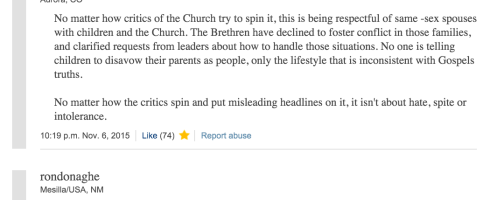I will be adding category-specific mailing lists in the near future so that loyal readers can be notified only when a post comes out that they care about. For now, if you would like to be placed on one of these lists, please email me privately at sometimesprofound@gmail.com.
Intelligence as Compounded Interest
9 Mar
What does IQ mean?
A=Pe^(rt) is the formula for compound interest. Suppose that intelligence compounds over time during the first 21 years of life, as the brain is developing. Intelligence quotient is supposed to represent the rate at which intelligence increases during that period. But what does that mean? Does that mean that IQ is a kind of APR in a compound interest formula? Lets take a look at what that would imply.
Suppose everyone starts out with 10 intelligence (an arbitrary number that doesn’t really matter).
If V has has a constant IQ of 40 (mentally disabled), then, A=Pe^(rt) would imply that the AMOUNT of intelligence after 21 years of growth and development would equal 10e^(0.4*21), or just 44,471. That’s 3/1,000,000ths of the intelligence of an average person.
If W has a constant IQ of 90 (a bit below average), then, A=Pe^(rt) would imply that the AMOUNT of intelligence after 21 years of growth and development would equal 10e^(0.9*21), or 1,614,974,644. That’s 36,315 times the intelligence of the mentally disabled person, but only 12.25% of the intelligence of an average person or 1.5% of the intelligence of a person with IQ 110.
If X has a constant IQ of 100 (presumably exactly average), then, A=Pe^(rt) would imply that the AMOUNT of intelligence after 21 years of growth and development would equal 10e^(1*21), or 13,188,157,345. That’s 12.25% of the intelligence of a person of IQ 110.
If Y has a constant IQ of 110 (a bit above average), then, A=Pe^(rt) would imply that the AMOUNT of intelligence after 21 years of growth and development would equal 10e^(1.1*21), or 107,696,733,712. That’s 8.17 times the intelligence of an average human.
If Z has a constant IQ of 160 (genius), then, A=Pe^(rt) would imply that the AMOUNT of intelligence after 21 years of growth and development would equal 10e^(1.6*21), or 3,911,061,021,110,377. That’s 296,559 times the intelligence of an average human or 87,946,325,046 times the intelligence of the mentally disabled individual.
And that is why rely on people like Einstein to solve the mysteries of the universe.
Of course, this isn’t the whole story.
1) The brain may not develop at the same rate throughout life. If it slows substantially in the late teens, then the differences in intelligence between people of different IQs should be less dramatic.
2) Over time, the brain may deteriorate at a rate that is related to its earlier rate of growth. If those with more intelligence lose it faster, then one would expect the population to converge somewhat at older ages, long after the brain finished developing.
3) The brain may not start and stop developing at 0 and 21. It likely begins developing while still in the womb, and it could be through with major development at a much earlier age. Or, it could continue developing at a reduced rate through adulthood. As far as I know, we simply don’t have sufficient data on when the brain develops and at what rates.
4) The brain might not develop at a compounding exponential rate. It could develop at a flat rate, or by some weird hybrid complicated function.
What happens to the numbers if we assume, instead, that the brain develops only from 0 to 18?
If V has has a constant IQ of 40 (mentally disabled), then, A=Pe^(rt) would imply that the AMOUNT of intelligence after 21 years of growth and development would equal 10e^(0.4*18), or just 13,394. That’s 2/100,000ths of the intelligence of an average person.
If W has a constant IQ of 90 (a bit below average), then, A=Pe^(rt) would imply that the AMOUNT of intelligence after 21 years of growth and development would equal 10e^(0.9*18), or 108,535,199. That’s 8103 times the intelligence of a mentally disabled person, but only 2.7/100ths of the intelligence of a person with IQ 110.
If X has a constant IQ of 100 (presumably exactly average), then, A=Pe^(rt) would imply that the AMOUNT of intelligence after 21 years of growth and development would equal 10e^(1*18), or 656,599,691. That’s 6 times the intelligence of a person with IQ of 90.
If Y has a constant IQ of 110 (a bit above average), then, A=Pe^(rt) would imply that the AMOUNT of intelligence after 21 years of growth and development would equal 10e^(1.1*18), or 3,972,196,658. That’s 6 times the intelligence of an average human.
If Z has a constant IQ of 160 (genius), then, A=Pe^(rt) would imply that the AMOUNT of intelligence after 21 years of growth and development would equal 10e^(1.6*18), or 32,187,042,897,020. That’s 49,020 times the intelligence of an average human, or 2.4 BILLION times the intelligence of someone who is mentally disabled.
Implications
IQ is believed to be driven by a mixture of environmental and genetic factors. Although the genetic underpinnings of intelligence are not well-known, a handful of alleles have already been identified in the human genome as being statistically correlated with as much as a single IQ point even after controlling for 1 million independent DNA regions in a sample of over 100,000 people. There may be something like 10,000 of these minor genetic variations, any random 100 or so would be responsible for about 15 IQ points. Some have postulated that artificial genetic modifications would someday allow us to create future generations of humans that have most or all of these alleles expressed optimally, generating theoretical normal IQs in the hundreds, or perhaps even over 1000.
How smart would a super-human be with an IQ of 1000?
Under the 18-year model discussed above: *only* 2-with-70-zeroes times smarter than a current average human.
Under the 21-year model discussed above: 1-with-82-zeroes times smarter than a current average human.
Think about the most powerful supercomputer in the world (as of November 2015), China’s Tianhe-2, which has about 1,408,000,000,000,000 bytes of memory, and compare it to a single byte of data (8 1s & zeroes, representing basically a single letter, number, or character). Take that amount of memory to about the fifth power, and that is how smart a 1000 IQ superhuman would be compared to us (a single byte).
Why do some people hate Barack Obama? Is it because he’s black?
24 Feb
The Carrot Spatula
5 Feb
I call it… The Carrot Spatula.


AND BONUS —
A Better Primary System
3 Feb
- Let Iowa and New Hampshire continue holding nominating contests in early February.
- Then, sort all remaining states (and voting territories, like Guam) by size, and classify them into three tiers, with an approximately equal number of delegates at stake in each tier.
- All states in the first tier (the smallest states) vote on the second Tuesday in February.
- Tier two votes on the second Tuesday in March.
- Tier three votes on the second Tuesday in April. And then you can hold the conventions in May.
- Tiers 1 and 3 rotate places every four years.
WHY SHOULD WE ADOPT THIS SYSTEM?
The current primary system is a mess.
Almost every state is faced with a dilemma: 1) leave the primary where it is and resign oneself to a state of irrelevance, or 2) move the primary inexorably earlier, wasting millions, or even hundreds of millions of dollars (as in the case of California in 2008) just in the transaction costs of hosting Presidential primaries separately from local primaries. The alternative (moving all of the local primaries earlier and earlier every year) is likewise sub-optimally palatable.
The public are forced to coexist with an inexorably lengthening election cycle, in which national elections have become a near-constant phenomenon.
Those few states that take a moral stand and refuse to move their primary to gain influence are punished for it.
Finally, the primary system is lumpy. Some states’ primaries are all alone amidst a sea of media coverage. Others’ are all clogged into Super Tuesday.
It is, quite simply, a senseless mess. And, everyone knows it.
If everyone knows and agrees that it is a mess, then why hasn’t anyone changed it?
That’s a great question. One might similarly ask why Congress never seems to get around to passing budget bills until the government is brought to the brink of collapse. The simple answer is that a complex system with many stakeholders contains a lot of obstacles to doing things. Few states have a strong interest in reforming the primary system. But, the traditional first few states have a very large interest in retaining their primacy.
Plus, not everyone has coalesced around the same solution yet. A lot of people would like the states to all be equal. Iowa and New Hampshire want to retain their primacy. Some people think that the race fundamentally changes once the first couple of actual votes are cast and recorded, and so it is a good idea to put a couple of states without a ton of delegates a bit ahead of everyone else, so that the system has a chance to adjust to whatever happens and really vet the candidates. Some people want a drawn out primary, so that the candidates are more thoroughly vetted. Other people advocate a shorter primary, so that the eventual winner is less damaged by the time they go up against the opposition.
This system gets around those concerns.
By retaining Iowa and New Hampshire as the first states, this plan simultaneously avoids pissing off those states and retains the advantages of having a couple of states out front for early vetting. The inhabitants of both states are actually quite used to performing this job, and take cultural pride in it. Anyways, they really only have a few delegates between them, so it doesn’t make that much difference to everyone else.
Then, this system puts all of the other states on equal footing with eachother. Under this system, there are no states that are truly irrelevant, as there is a substantial possibility that any given competitive election will still be undecided by the time it gets to the third wave.
In the current system, campaign events are heavily concentrated in the first 4 states, and almost non-existent for states whose contests occur after Super Tuesday. This system would allow candidates to focus their efforts in states that are conducive to their message. All states would see campaign events.
By the same token, we should do away with the electoral college, and enter an era of true representative democracy.
On the LDS (Mormon) Church’s Decision to Disallow Baptisms from the Children of Gay Couples
10 Nov
Whatever.
The Church doesn’t want to sow confusion and contention in families, and doesn’t want to allow children to sign away their lives into a religion when they are far too young to understand the consequences. Good.
Kids shouldn’t be baptized at 8 anyways.
That is way too young. Mormons baptize at eight because it is the “age of accountability.” In oher words, you are old enough to understand the difference between right and wrong. But baptism isn’t about recognizing the difference between right and wrong; it is about recognizing the difference between Mormonism, Catholicism, Islam, Buddhism, Atheism, and Deism, etc. I was a pretty smart cookie at 8, if I do say so myself. But I had no idea. Literally.
Kids can’t understand complex logical arguments. Most adults aren’t even capable of really understanding and expressing their religious beliefs in coherent English.
If baptism isn’t about picking a religion and coming to a determination about how you live your life, then what is it about? And if it is about those things, then why is the Mormon Church making silly assumptions that 8-year-olds are at the right age to do that? Eight-year-olds are in like 2nd grade. When I was in second grade, I think I peed my pants at school once. These are like, practically toddlers. They just barely learned to read. Some of them are still working on that!
The decision is still blatantly discriminatory.
The LDS Church is not letting in the kids of gay couples. Basically, they are saying, “We love you, but your kids need to go through a cleansing process before we will touch them.”
The decision is contradictory.
The LDS Church makes a pretty big deal about all of the blessings that come with having the Holy Ghost in your life. After you get baptized, you are bestowed with “the Gift of the Holy Ghost” during your confirmation. The Holy Ghost can still visit you if you aren’t a member of the Church, but once you get the Gift, he is basically always there, helping you along your way.
The Mormon Church never really goes into much detail about who this Holy Ghost guy is, aside from the fact that he is a member of the Godhead (along with Jesus and God), so he is basically a God. But, leaving aside the fishy bit of non-doctrine, it doesn’t really make any sense for the Mormon Church to not want to extend those benefits to some kids.
The way I see it, you have two choices: Either 1) things are predetermined and bad people do no good by trying to be good, or 2) things are not predetermined, and you can potentially be instrumental in someone else getting into the Celestial Kingdom by being a great example and by welcoming them into your church and your social circle. The Mormon Church’s decision is practical in a temporal, non-religious sense (they aren’t sowing contention within families). But, from the standpoint of “Let’s get everyone to accept the one, true gospel as quickly as possible and get them to come to the church because it really will make God’s plan come true,” it really makes absolutely no sense at all to exclude those people from the church that you fear are most likely to fall away from its teachings. Something I learned when I was young is that we learn by example from the people around us. If the Mormon Church is denying kids the ability to be around other people who would set precisely the example that the Mormon Church thinks that they would need, then the Mormon church is not really looking out for their best interest, consistent with its hypotheses that it is the one true church, etc.
Conclusion
Whatever. The Mormon Church has been anti-gay since its inception. They used to conduct electro-shock therapy, and do other inhumane stuff. The church isn’t true. It is convenient. It plays on people’s evolutionarily-driven tendencies to believe in God and morality, and their desire to wrap their perception of the world up into a neat package. But morality is just collective action (If you don’t know what that means, then feel free to ask in the comments, and we can have a conversation.). The world is a beautiful thing of order, but the order is perfectly explainable in terms of a bunch of stuff following a small set of inflexible rules over a long period of time. The world is a creature of random chance, not convenient human fantasies. The fact that the Mormon Church is willing to twist itself into knots like this just adds another straw to the argument that they don’t, at heart, even fully believe in themselves.
To all my Mormon relatives and friends out there, you know deep inside that you don’t have an irrefutable reason to believe what you believe. You believe it because you can, because it gives you a sense of stability and order. You believe it because you have always believed it. You believe it because the Cruel Truism (again feel free to ask in the comments section) makes you believe it. It’s BS. But, if it makes you happy, then whatever. ;P
About the Author
Some of you may be aware that I was raised Mormon, and identify as such no more. Some of you may also be aware that I am in a long-term relationship with my boyfriend, Trevor. If not, you are now.
Thought of the Day: 100 cheeses that start with “A”
8 Nov
I love cheese sooooooo much. So, here are 92 cheeses that start with “A,” courtesy of cheese.com!
Enjoy!
Abbaye de Belloc
Why I’ve Stopped Doing Interviews for Yale
22 OctIt’s a random process, disguised as a deliberative one.
Adam Lambert is Back with “Another Lonely Night” Music Video
9 Oct
Adam Lambert’s new music video is on Youtube. Although, as of 10/9/15 12:50AM, it is still unlisted and therefore won’t show up in a search or on Lambert’s list of music videos, you can watch it if you have the link to the direct URL. Luckily, I do. And now, I am sharing it with you. ;P You can watch “Another Lonely Night” HERE.
“Another Lonely Night” is the second single off of Lambert’s third studio album, The Original High. Luke Gilford directed the music video; Adam Lambert, Sterling Fox, Max Martin and Ali Payami co-wrote the song.
Internationally, “Another Lonely Night” was released early in Poland and South Africa. It is currently charting at #s 28 and 35 on the iTunes charts of the two countries, respectively. “Ghost Town,” meanwhile, remains at #52 on MediaTraffic’s global singles chart, at #44 on the worldwide Spotify chart, and in the Top 25 on 12 countries’ iTunes charts (#3 Kazakhstan; #9 Finland; #9 Hungary; #11 Luxembourg; #12 Czech Republic; #14 Belarus; #16 Portugal; #21 Germany; #22 Namibia; #22 Netherlands; #23 Poland; #24 Austria). “Ghost Town” peaked in the Top 20 of the US Pop and Adult Pop Songs airplay charts, and at #64 on the US Hot 100. It peaked at #1 on Poland’s official airplay chart and at #2 on the official singles charts of Australia and South Africa. It has been certified for platinum sales in both Poland and Australia. It is currently sitting at a to-date peak of #12 on Germany’s official singles chart.
My personal opinion? I’ve always thought “Another Lonely Night” was a stronger single choice than “Ghost Town.”
REPOSTED FROM:
Adam Lambert is Back with “Another Lonely Night” Music Video
Check out Music Industry Sandbox for in depth coverage of artists and the music industry.
Adam Lambert reaches Top 20 on Pop Songs
22 SepAdam Lambert has finally reached the Top 20 on Billboard’s Pop Songs airplay chart in its 18th tracking week. For full details on the milestone this represents, and how it was achieved, see the full post on Music Industry Sandbox:
Adam Lambert finally reaches Top 20 on pop radio spins per mediabase











































































